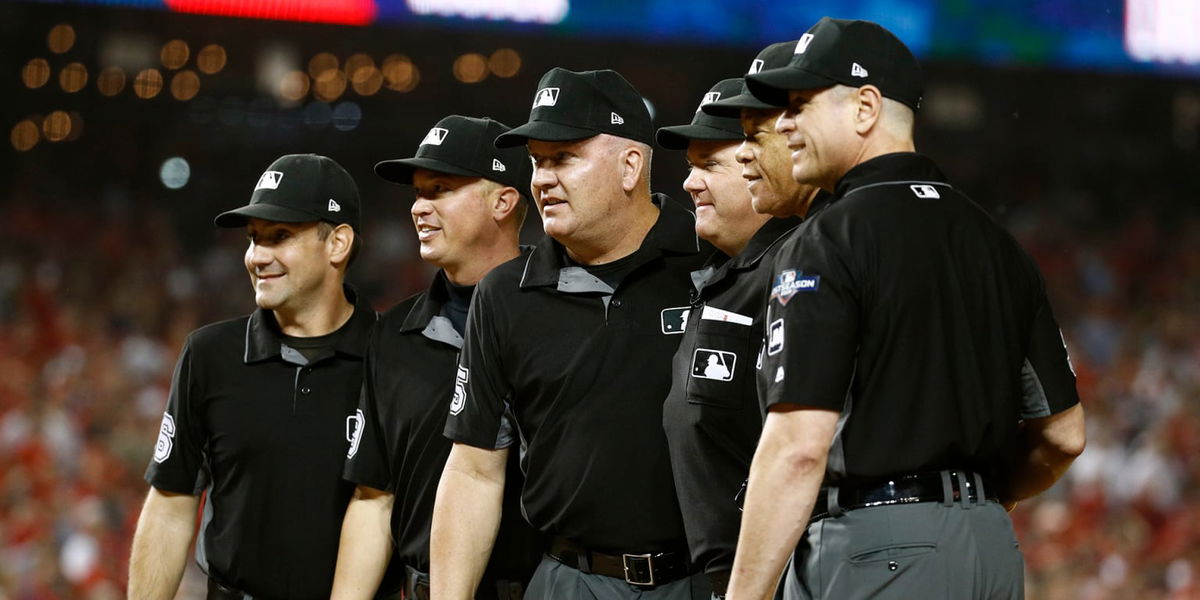
Imago
Credit: MLB.com

Imago
Credit: MLB.com
For years, baseball purists have debated how much technology should influence the game. But now, MLB is throwing its weight behind one of the most significant midseason experiments to date. In response to the growing chorus of frustration around umpiring inconsistencies, the league has decided to debut the Automatic Balls and Strikes (ABS) challenge system in the 2025 All-Star Game at Truist Park.
Watch What’s Trending Now!
Jesse Rogers of ESPN broke the news: “MLB to use ABS challenge system in the game next week.” This isn’t just a quirky exhibition twist—it could shape the future of MLB.
So, how exactly will it work? Modeled after its spring training debut, each All-Star team gets two ABS challenges, with the chance to retain them if the call is overturned. But here’s the twist: only the pitcher, catcher, or batter can initiate a challenge—no help from the dugout, no coach’s input. A simple tap of the helmet or cap signals the review, after which the scoreboard displays a Hawk-Eye-based animated strike zone replay for fans and players alike. And while robotic umpires aren’t fully here yet, this hybrid approach is inching the league closer to that possibility.
ADVERTISEMENT
What’s fueling the push? Fan demand. MLB says 72 percent of spring training attendees had a positive reaction to ABS. More importantly, 69 percent want to see it implemented permanently. Sure, not everyone is on board—there’s been some old-school pushback—but the trend mirrors the evolution of the pitch clock debate. As ESPN’s Jeff Passan noted: “There will be growing pains, yes, but the system will be a net positive.” And with All-Star Game visibility, the league is clearly using this stage to test the waters in primetime.
All-Star news: MLB to use ABS challenge system in the game next week. Story here: https://t.co/fpS1UFWsFu
— Jesse Rogers (@JesseRogersESPN) July 9, 2025
ADVERTISEMENT
Still, this overhaul isn’t just about appeasing critics—it’s about regaining trust in how games are decided. As blown calls pile up and tempers flare, MLB needed a moment like this to shift the conversation. And if the ABS challenge system earns praise under the spotlight, don’t be surprised if it’s back for good by 2026.
While the All-Star Game’s ABS rollout represents a symbolic first step, the urgency behind MLB’s decision is rooted in real-time frustrations, some of which are boiling over from baseball’s biggest stars on the main stage.
Bryce Harper’s umpire outburst fuels ABS debate after blown calls spark controversy
On a night when the game should’ve been about playoff implications, it was the man behind the plate who stole the spotlight. Home plate umpire Phil Cuzzi found himself at the center of yet another strike zone controversy during Monday’s Phillies-Giants clash. What started as a tight battle quickly tilted after two glaring missed calls against Bryce Harper. The Phillies slugger, clearly frustrated, made sure to hold the umpire accountable after the game, saying, “I respect Phil… but obviously that doesn’t help us in that situation. He’s got to do better.” The Hawk-Eye system confirmed the errors—and so did the league’s most vocal star.
But the moment that truly tipped the scales came in the bottom of the eighth. Three pitches outside the zone were all ruled strikes in favor of Giants third baseman Matt Chapman, allowing a game-changing single that led to San Francisco’s go-ahead run. The Phillies, who went 0-for-6 with runners in scoring position, were certainly responsible for their shortcomings, but even neutral fans couldn’t ignore how badly the strike zone impacted the outcome. With mounting pressure on umpires and Hawk-Eye data exposing every miss, Harper’s postgame frustration may have been the final straw in the ABS movement gaining momentum.

As MLB leans into technology to enhance fairness, the 2025 All-Star Game’s ABS trial and real-time controversies like Harper’s only strengthen the case for change. Fans want accuracy, players want consistency, and the league can’t afford more “ump shows.” The future of baseball might just lie in a pitch—measured, tracked, and now challenged.
`
ADVERTISEMENT
ADVERTISEMENT
ADVERTISEMENT
ADVERTISEMENT